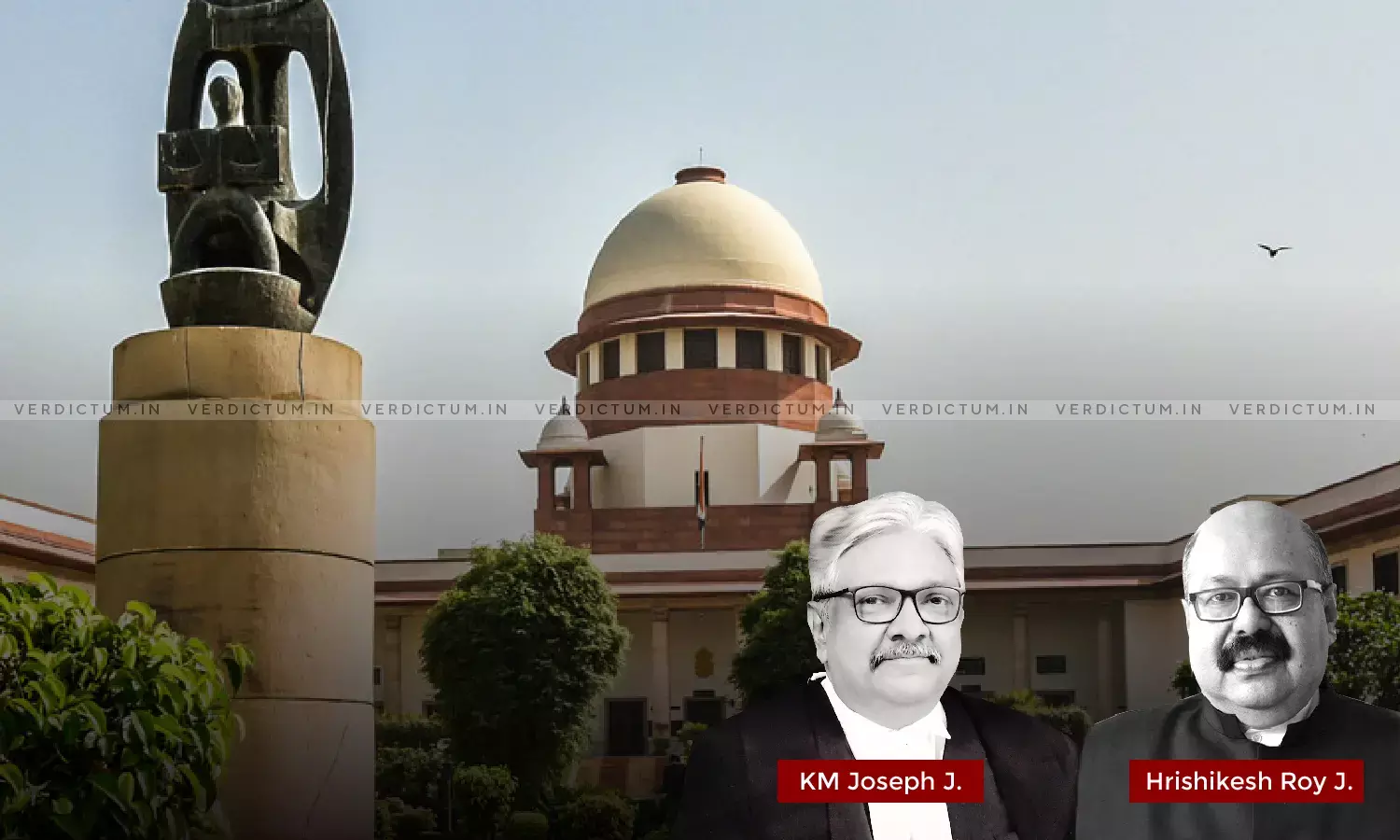Initial Possession Of Stolen Goods May Not Be Illegal But Retaining It Knowing That It Was Stolen Makes It Culpable: SC

The Supreme Court has observed that the initial possession of stolen goods may not be illegal but retaining it with the knowledge that it was a stolen property, makes it culpable under Section 411 of Indian Penal Code.
"The initial possession of the goods in question may not be illegal but retaining those with the knowledge that it was stolen property, makes it culpable.", the Bench of Justice KM Joseph and Justice Hrishikesh Roy observed.
As per the case of the prosecution, a truck driver was murdered by one Sadhu Singh alias Vijaybhan Singh with co-accused Raju alias Rajendra. The loaded goods in the truck were looted and those stolen articles were received by the present appellant Shiv Kumar and co-accused Shatrughan Prasad allegedly knowing the articles to be stolen property.
The prosecution claimed that the goods were sold at cheaper rate by the two accused who were, accordingly, charged for offences under Section 411 of the IPC.
The Trial Court convicted the co-accused Sadhu Singh for the offence of murder and related charges while the appellant Shiv Kumar and co-accused Shatrughan Prasad were convicted under Section 411 of the IPC.
The conviction was upheld by the High Court.
Aggrieved, accused-appellant Shiv Kumar approached Supreme Court.
Advocate Lav Kumar Agrawal appearing for the appellant submitted that the essential ingredients of Section 411 IPC offence were not made out as the prosecution had failed to adduce any evidence to show that the accused had knowledge that the seized articles were stolen from the looted truck.
On the other hand, Advocate Gopal Jha, appearing for the Respondent – State supported the view taken by the Courts below. According to him, adequate material and evidence were on record which established the guilt of the accused, beyond reasonable doubt.
The Supreme Court observed that the "believe" factor of a person is important to establish that a person is dealing with stolen property. The Court further held that for successful prosecution it is not enough to prove that the accused was either negligent or that he had a cause to think that the property was stolen, or that he failed to make enough inquiries to comprehend the nature of the goods procured by him. The Court observed that retaining those with the knowledge that it was stolen property, makes it culpable.
The Court further noted that "…the disclosure statement of one accused cannot be accepted as a proof of the appellant having knowledge of utensils being stolen goods."
Therefore the Court held thus "In these circumstances where it is not established that the appellant dishonestly received stolen property with the knowledge and belief that the goods found in his possession were stolen, the conviction of the appellant under Section 411 IPC, in our view, cannot be sustained."
Accordingly, the Court ordered the acquittal of the appellant-accused.
Cause Title- Shiv Kumar v. State of Madhya Pradesh
Click here to read/download the Judgment

